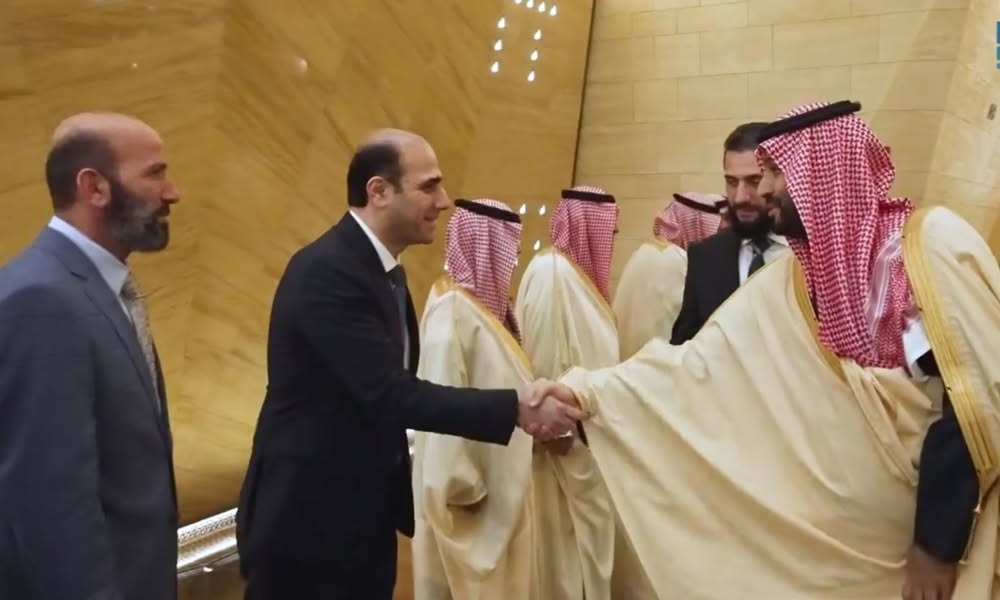
Syrian President Ahmad al-Sharaa is often viewed with skepticism by Western observers, who suspect authoritarian ambitions beneath his pragmatic leadership. However, his success as a wartime leader and, ability to connect with diverse segments of Syrian society demonstrate his potential as the sole unifying and persuasive figure in the country.
Many West-based Syria observers still doubt Sharaa’s ability to rule fairly over a complex, war-torn country. He is generally seen as a pragmatic leader, but a would-be authoritarian in disguise. His strong story as a war-winning warrior and his persuasion as a politician over different Syrian factions can make such fears trivial in a country where a decisive leader is needed.
The appointment of his brother Maher al-Sharaa to a crucial government role is seen as an early indication of the possibility of such authoritarianism. Insiders say the sole reason for the appointment of Sharaa's brother is the bureaucratic gap that was left behind after Assad’s fall. His Russian-speaking brother, a doctor who worked in Russia for 30 years before moving to Izmir in 2022, is considered qualified for high-profile, loyalty-dependent roles during Syria's historic transition.
His other brother, Hazem al-Sharaa, accompanied his brother during a visit to Ankara despite not having an official position in Syria. Hazem al-Sharaa also visited Saudi Arabia with a Syrian delegation and shook hands with Saudi Crown Prince and Prime Minister Mohammed bin Salman (MBS) with the introduction of his president brother.

However, Sharaa’s power to unify and embrace complex differences in Syria can make him a sole choice in Syria’s long-term transition to a stable country. He is after Syria’s interests. In his interview with the Jewish Journal, he said, “No nation prospers when its skies are filled with fear. The reality is, we have common enemies—and we can play a major role in regional security.”
He meets with different religious or society leaders, he expresses appreciation for Syria’s cultural richness, and most importantly, many people respect him for winning a war that got rid of Assad. It is important to reiterate, Sharaa is a warrior-turned-state leader who won a war. Such a resume is not easy to achieve.
Last week, his appreciation of his wife made headlines in the Syrian press. In a meeting with female Syrian guests on the occasion of Eid al-Adha, Sharaa thanked his wife for her perseverance, and said, "My dear wife was with me in every hardship in my life. She lived with me in 49 different places. We were like migrants. We even lived in caves and farm houses for livestock. I tried to convince them to find a safe and better location, but she refused."
Al-Sharaa will keep reminding the past struggles of Syrians along with his own story that may create a sense of unity among Syrians.

Anticipating a swift establishment of a robust democracy in Syria is unrealistic. Syria needs functioning institutions that serve people’s basic needs. Reconstruction is a major priority for the new government. Syrians are returning from across the country and abroad to damaged homes in areas destroyed during a decade and a half of civil war. This reality should prevent the rush for unrealistic expectations in Syria in the short term.
Sharaa often hints at the fact that the Syrian people's dignity, through housing, electricity, and safety, must be established before initiating a full-force, and potentially failing, democracy. U.S. President Trump's presidency offered a significant chance for Sharaa, as the president shied away from dictating values and intervening in foreign nations like Democratic presidents.
In an article published on Foundations for Defense of Democracies, authors naively compare Saudi Arabia with Türkiye, and wrote, "If Ahmed al-Sharaa is true to his word about building a new Syria that is for all Syrians, he and his people will be better off with the Saudis at his side than the Turks" because Saudi Arabia is more on course of liberty than Türkiye.
Such arguments and naive comparisons that expect a magical touch to make things work in Syria are simply misleading. What will save Syria is a national identity, a feeling of belonging, and a shared culture, instead of a top-down democratic process that may devastate what has already been achieved.